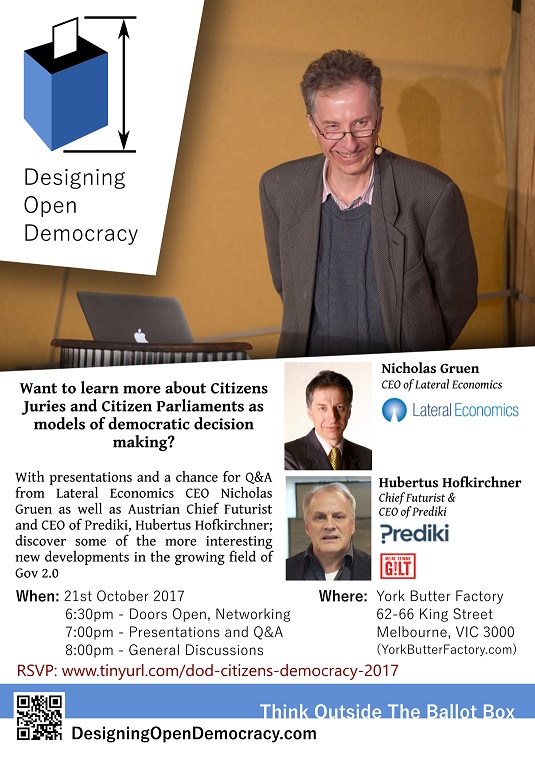Max's Response
Max from Flux has a detailed response to Nick's analysis "Evaluating Democracy Reform Proposals"
Max from Flux has a detailed response to Nick's analysis "Evaluating Democracy Reform Proposals"
(Originally posted in https://nmerange.github.io//politics/evaluation/cause%20prioritisation/evaluating-democracy-reforms-working/ ), last updated May 1, 2018
Author: Nick Merange
There are several promising democracy reforms being developed at the moment, some based on technology while some are not. This is not a comprehensive list, but rather an overview of the most significant efforts I'm aware of after being exposed to several as part of Designing Open Democracy. The descriptions, evaluations and summaries here are rough and open to further revision, readers are encouraged to provide suggestions as to what things should be included and excluded in the following summaries or how I might consider adjusting my evaluations and why.
The primary goal here is to provide a rough evaluation of these interventions, their relative strengths and weaknesses in comparison to each other and our existing democracy according to certain criteria of what we're after in a good democratic system. The following comprises a list of interventions I'll be considering here.
Professor Gillian Triggs presented a public lecture on Friday 23 March 2018 on the topic, "The Decline of Parliamentary Democracy in a Post-Truth Era".
Audio Recordings: https://echo360.org.au/media/4fec6400-94d7-421c-96c9-566bd4b2cbd2/public
Notes: http://law.unimelb.edu.au/__data/assets/pdf_file/0005/2727113/Professor-Gillian-Triggs,-The-decline-of-parliamentary-democracy-in-a-post-truth-era-a-Charter-of-Rights-for-Australia.pdf
http://law.unimelb.edu.au/about/mls-video-gallery/public-lectures-and-events/the-integrity-jim-carlton-lecture-23.03.18
A Charter will also allow Australia to meet its international obligations and resume its leadership position globally and regionally as a good international citizen. Above all,
Australia could return to the rule of law and to the principles of legality upon which
our democracy is based.
Australia’s first Open Government National Action Plan 2016-18 comprises 15 ambitious commitments that promote transparency, empower citizens, fight corruption, and harness new technologies to strengthen governance. This website contains information on our Plan and progress towards its implementation.
Details in
https://ogpau.pmc.gov.au/2018/02/12/open-government-forum-meeting-22-february-2018
This may be of interest to the Accountability Round Table group as they are interested in combating corruption.
Rationale & Vision Designing Open Democracy so far has centered on the niche topic of “Democratic System Reform” and is a gathering of minds to think about ways that our current system could be improved, without endorsing any particular system.
While this topic is very interesting, we are at a juncture where we are trying to work out exactly what is group is and what we are trying to do. We are also aware that there are other groups with similar goals and we want to carve out a niche which teams up with rather than double ups existing efforts.
This could go in any number of directions: * A. Are we just fans of the idea who just want to talk about it for our own enjoyment? or * B. Are we trying to actually change the current system?
Tuesday, January 23, 2018 at 6:00 PM to Tuesday, January 23, 2018 at 9:00 PM AEDT Beer Deluxe @ Fed Square
2 Swanston St Melbourne VIC 3004 · Melbourne
https://www.meetup.com/designingopendemocracy/events/246894356/
Rand Strauss thoughts on real representation:
I know little about Australian politics. But I think it's similar to politics elsewhere- it was never designed.
In general, representative democracies are dependent on representatives (people who know what constituents want) being accountable (serving constituents, reporting to them and being judged by them.)
The main component here is "accountability" which is a relationship. Actually, there are two important relationships, the one between the politician and the voters, and the one(s) between each voter and all voters together.
Relationships require communication. We don't have a communication system that supports either of these, and we've never designed one (until now- see below).
Historical: https://www.meetup.com/DesigningOpenDemocracy/events/242526634/
Historical: https://www.meetup.com/DesigningOpenDemocracy/events/243645818/

Historical Post: https://www.meetup.com/DesigningOpenDemocracy/events/239625786/
Audio Summary:
https://soundcloud.com/nick-merange/summary-challenges-facing-the-present-and-future-of-democracy